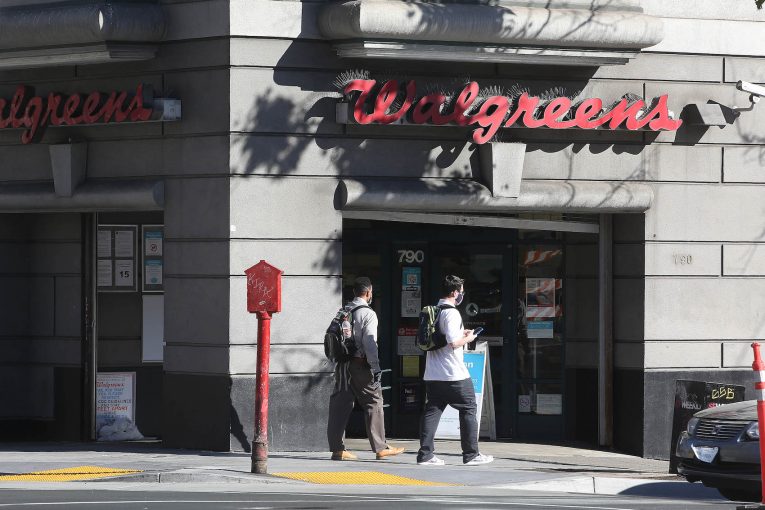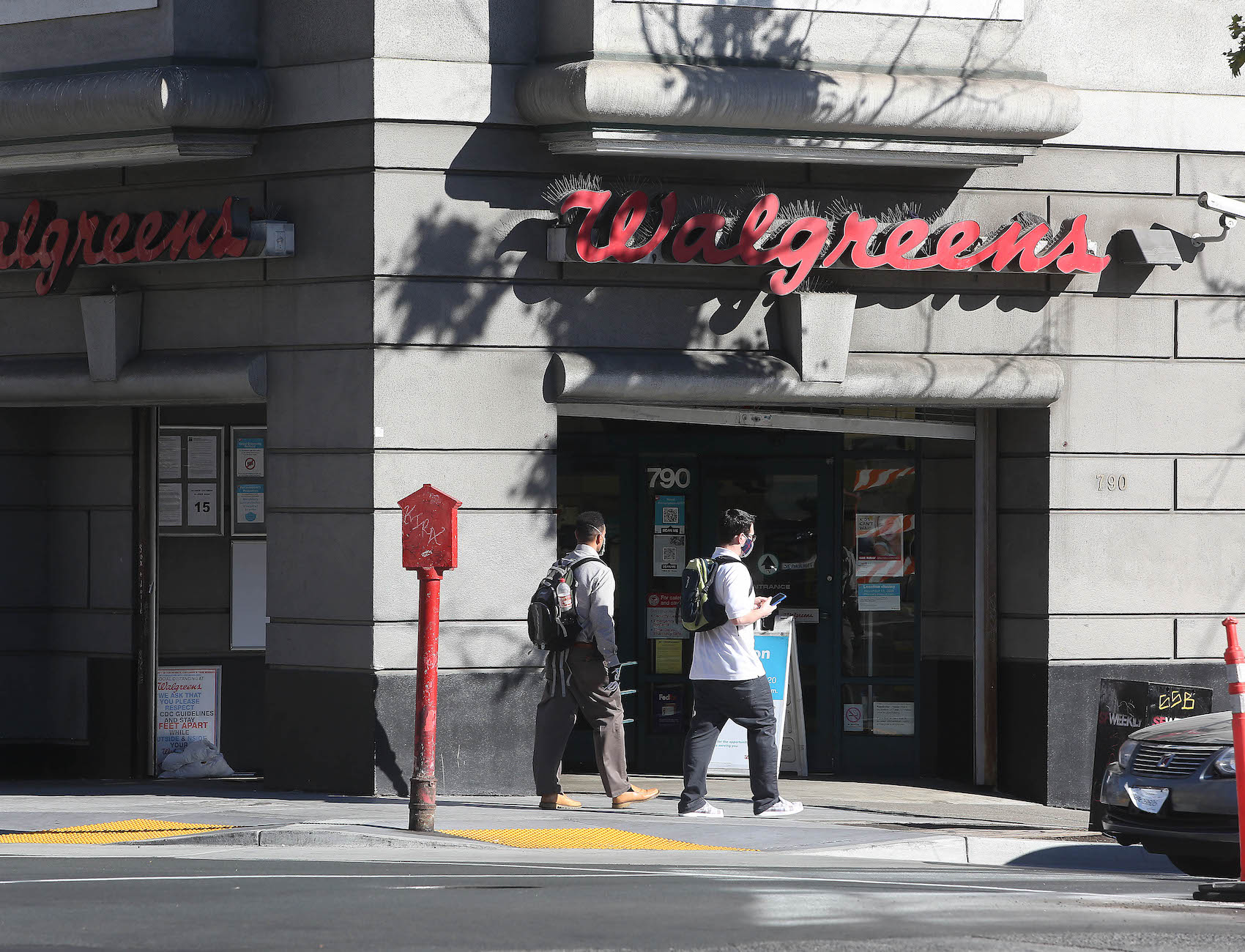

Photo by Lea Suzuki/The San Francisco Chronicle via Getty Images.
By David M. Greenwald
Executive Editor
The NY Times reported this weekend, “A national lobbying group has retracted its startling estimate that ‘organized retail crime’ was responsible for nearly half the $94.5 billion in store merchandise that disappeared in 2021, a figure that helped amplify claims that the United States was experiencing a nationwide wave of shoplifting.”
In 2021, the National Retail Federation said that “nearly half of the industry’s $94.5 billion in missing merchandise in 2021 was the result of organized theft.”
The NY Times reports, “It was likely closer to 5 percent, experts say.”
The group has now edited that claim “from a widely cited report issued in April, after the trade publication Retail Dive revealed that faulty data had been used to arrive at the inaccurate figure.”
The Times notes, “The retraction comes as retail chains like Target continue to claim that they are the victims of large shoplifting operations that have cut into profits, forcing them to close stores or inconvenience customers by locking products away.”
These claims have been fueled “by widely shared videos of a few instances of brazen shoplifters, including images of masked groups smashing windows and grabbing high-end purses and cellphones.”
But, the Times reports, “the data show this impression of rampant criminality was a  mirage.”
mirage.”
In fact, the Times adds, “retail theft has been lower this year in most of the country than it was a few years ago, according to police data. Some exceptions, including New York City, exist. But in most major cities, shoplifting incidents have fallen 7 percent since 2019.”
The policy implications of this are startling. For example, last year, San Francisco DA Chesa Boudin was removed from office, in part because of community concerns on organized retail threat. This despite police and other internal data that showed that such crime had not risen.
The fact that the impression and the data from the retail industry was backed by major commercial closings who blamed their closures on retail theft and these viral videos continued to add validity to it.
The policy implications continue.
A recent candidate’s forum in Los Angeles points to this perception problem.
As one candidate challenging the incumbent DA put it, “With regard to Prop 47, I would strongly advocate for amendments to that law. It was created back in a time when we did not have as much of the problems that we do today with the smash and grabs and the thefts of houses and businesses; we have to adjust to that and Prop 47 did not account for those recidivist offenders that kept going, repeating after time, after time, committing crimes.”
Another put it this way, “Prop 47 has to be amended for two reasons. One, it took away our ability to prosecute repeated theft crimes more seriously so that every theft crime under $950 is a straight misdemeanor period. And that makes no sense. You wouldn’t raise your child by giving your child the same punishment if they keep defying you over and over and over again.”
Another added, “Prop 47 needs to be amended or repealed. That’s it. And period. And as district attorney, I would be everything in my power to do that, the threshold from $950 need to be brought down to $400…”
But there are three problems with this viewpoint. One is that California’s threshold is still a lot lower than most other states. And the other is that the level of retail theft has been greatly exaggerated. The third problem is that when organized retail theft occurs— first of all, it can be charged as a felony through conspiracy and, second, the amount usually well exceeds $950. So if you look at the high-profile busts, they are all charged as felony cases.
As incumbent George Gascón pointed out, “The reality is that study over study has shown clearly and convincingly that Prop 47 has not increased crime. In fact, when you look at the $450 threshold that was in 1982 threshold and that was simply adjusted for inflation to $950, in most of the states around the nation, the misdemeanor threshold is nearly a thousand dollars. In fact, Texas, Tennessee, many of those red states have higher thresholds; in California, the reality is that we’re going through an epidemic that has caused many problems and displacement that are not associated with Prop 47.”
Jeff Chemerinsky added, “There’s a lot of misinformation about this. As to the first component, the rising of the threshold from $400 to $950. Here’s the facts, 38 states have thresholds that are higher. Texas has a threshold that’s $2,500.”
But still Sacramento Sheriff Jim Cooper, doesn’t buy it.
“With all due respect, I’ve read dozens of studies written by some professor, sitting behind some desk, at some university, using incomplete data claiming Proposition 47 had no impact on increased criminal activity,” he said.
He added, “Hard truth: crime isn’t down; crime is now massively underreported.”
He said this one Wednesday: “Meanwhile, the retailers have reported billions of dollars of losses since Proposition 47 but won’t report thefts because of their hands-off policies, much less call us to report these crimes. None of these self-professed pundits want to account for the Proposition essentially decriminalizing theft.”
We now know that this is completely false.
Alec Karakatsanis, a civil rights lawyer, was quoted by the NY Times noting that “the retraction underscored how some news organizations, which have extensively covered the issue of shoplifting” were “used as a tool by certain vested interests to gin up a lot of fear about this issue when, in fact, it was pretty clear all along that the facts didn’t add up.”
The media knew this at the time. For example in October 2021, Walgreens “said it would close five stores in San Francisco, citing repeated instances of organized shoplifting.”
But an analysis “by The San Francisco Chronicle showed that Police Department data on shoplifting did not support Walgreen’s explanation for the store closings.”
Walgreens backtracked, but the damage was done. The public impression was out there and it has changed the public discourse on crime, churning out people like Chesa Boudin, threatening others like the LA DA, and now focusing attention on repealing Prop. 47.

